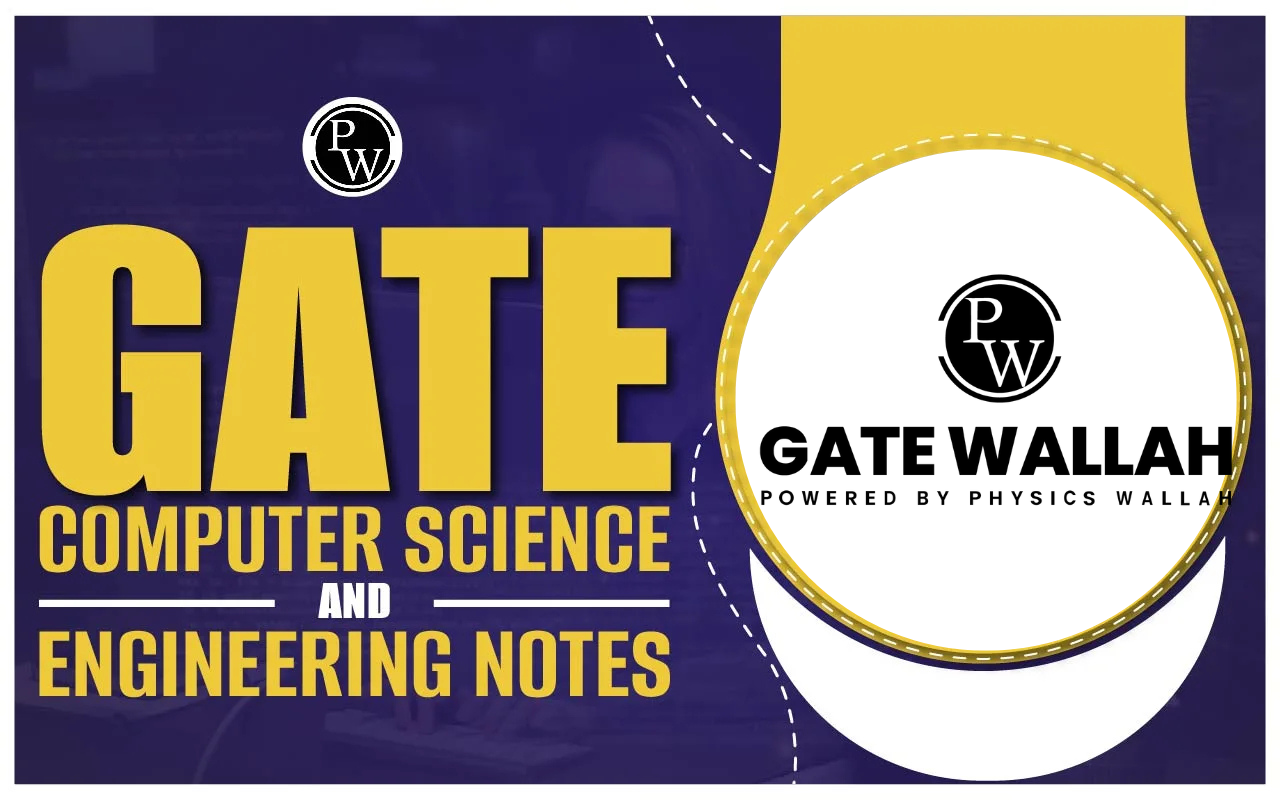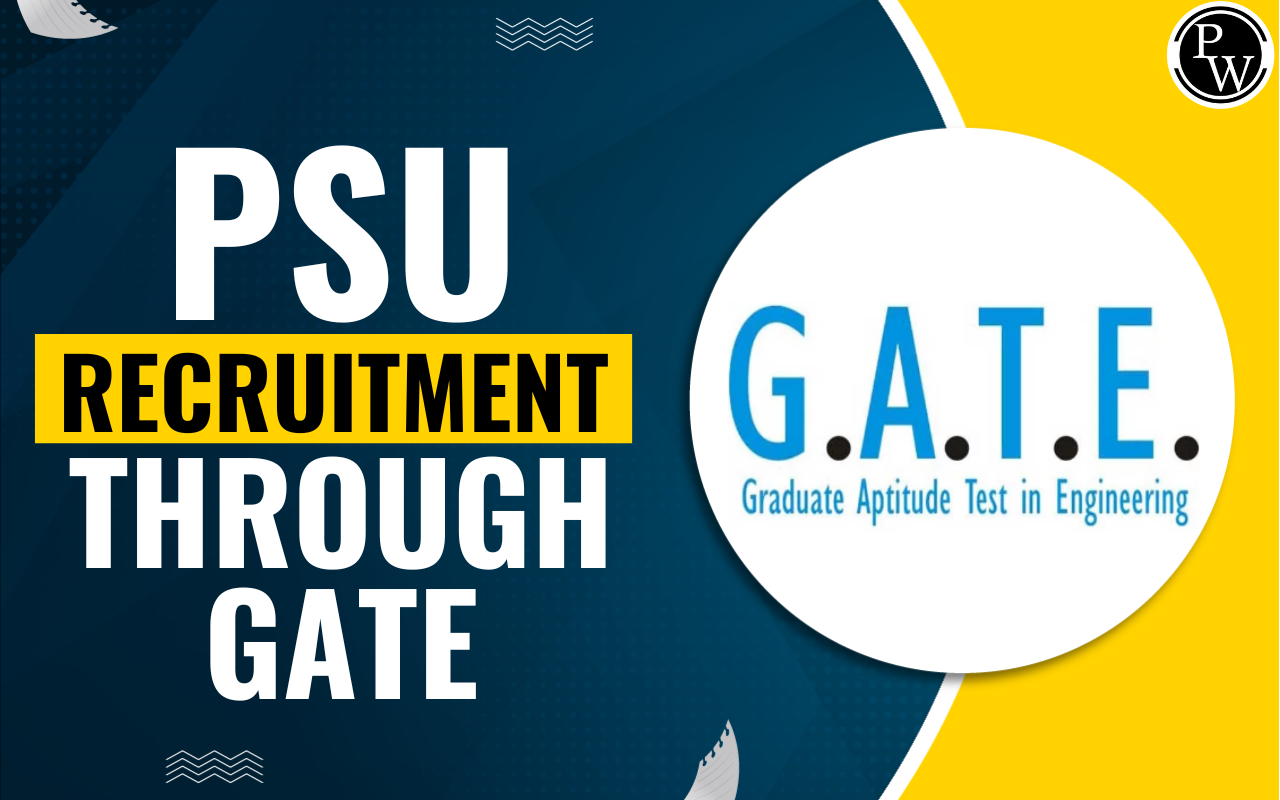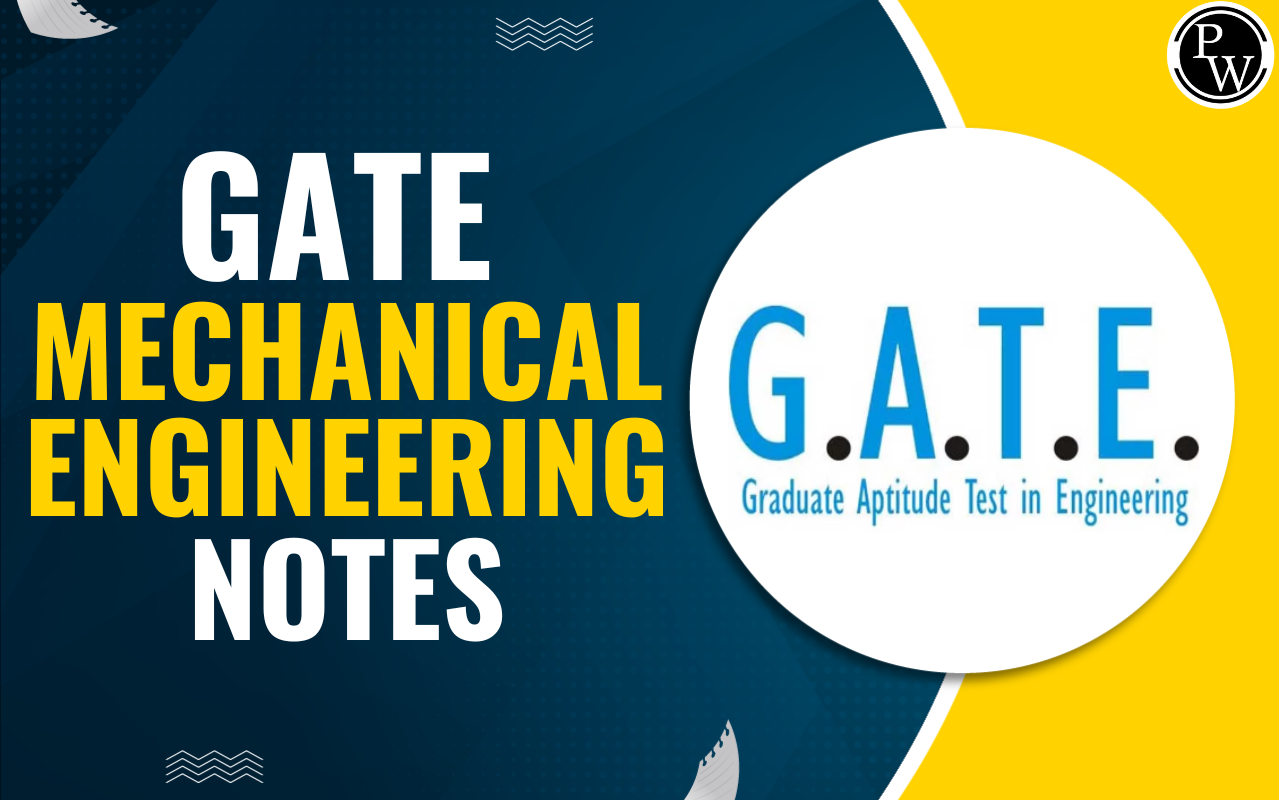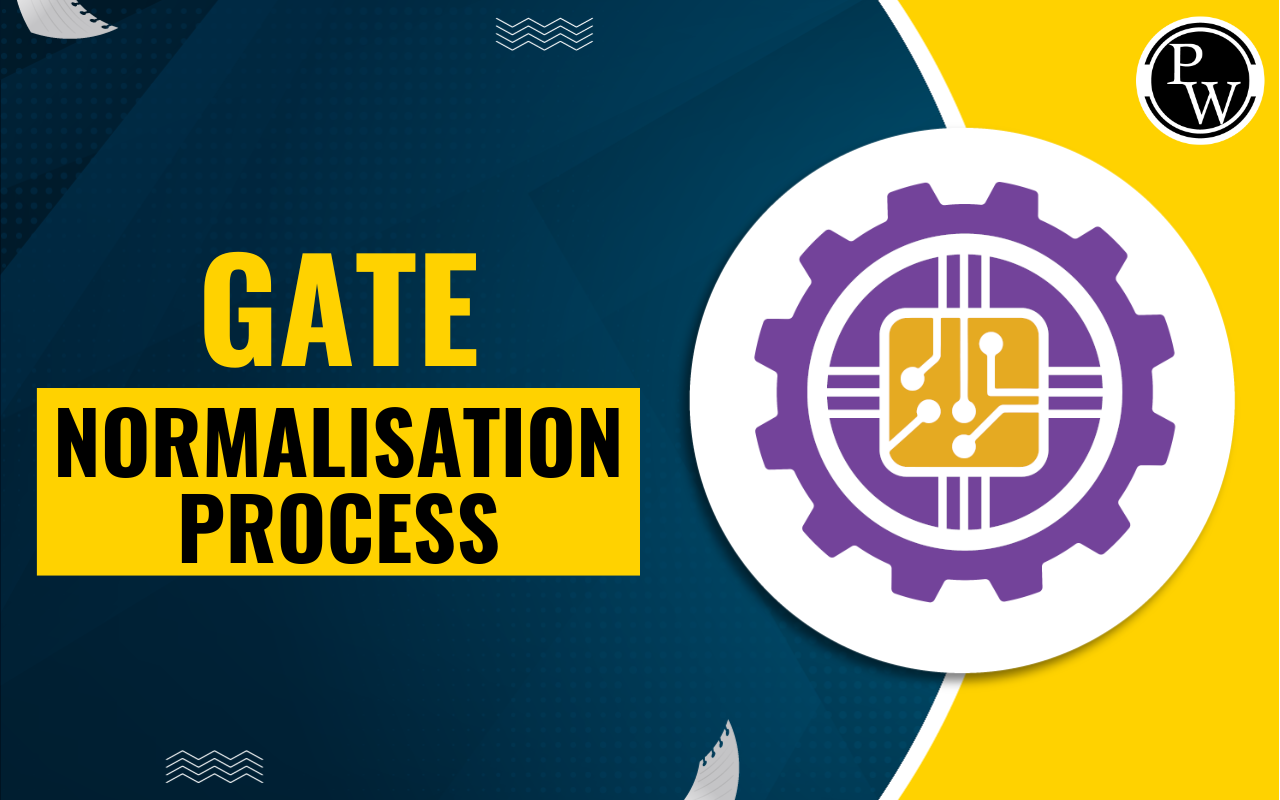
GATE Exam: The Graduate Aptitude Test of Engineering, commonly known as GATE , is a highly competitive offers rewarding opportunity for aspiring engineers. As the competition for GATE continues to grow, many students in their 3rd year of graduation are eager to discover effective strategies to ace this challenging exam. With lakhs of graduates and aspirants in their 3rd year of graduation appearing for the test annually, achieving a high rank becomes increasingly challenging.
GATE opens doors to prestigious job opportunities in reputed Public Sector Undertakings (PSUs) like NTPC, ONGC, BHEL, UPCL, HP, and others. However, students need to strike a balance between their GATE preparation and their ongoing coursework. In this article, we will delve into strategies on how to prepare for the GATE exam starting from the 3rd year of graduation.
Also, Read: GATE 2026 Preparation Strategy
How to Start Preparing for the GATE Exam from 3rd Year?
The examination authorities allow 3rd year students to appear for the GATE Exam to open the doors to their splendid career opportunities after completing the course. Candidates who want to perform well in the GATE Exam must start preparation earliest to cover the whole syllabus with a dedicated strategy.
The early start will give you a chance to analyze your potential and the improvements that need to be implemented to ace the preparation. Go through this post to check the preparation strategy to be followed to prepare for the GATE Exam from 3rd year of graduation.
How to Prepare for the GATE Exam from 3rd Year of Graduation?
Due to the high competition scenario and the exceptional job opportunities associated with the GATE exam, it is highly recommended that students commence their GATE preparation as early as possible. Initiating the GATE exam preparation during the 3rd year of graduation should be approached in a manner that does not compromise aspirants' ongoing graduation course studies. Here are some effective tips for students to follow when preparing for the GATE exam in their 3rd year of graduation:
- Selecting Ideal GATE Subject from 30 Options
- Building a Dedicated Study Timetable
- Examining and Understanding the GATE Exam Syllabus
- Comprehending the GATE Exam Pattern
- Utilizing Online Courses and Updated Study Resources
- Staying Consistent, Healthy, and Motivated
Let’s discuss these vital tips on how to prepare for the GATE exam from 3rd year of graduation in great detail below.
Selecting Your Best GATE Paper
The Indian Institute of Technology Roorkee is organizing the GATE 2026 examination and has recently announced the exam schedule. The GATE 2026 will be held in February, 2026 (tentative), as expected, for 30 different specializations of Engineering/Science and Technology
As students in the 3rd year aspire to appear for the GATE exam and plan their preparation journey, it's important to choose the subject that aligns with their ongoing graduation course.
This choice not only aids in their current graduation course but also enhances their GATE exam preparation simultaneously, providing a systematic approach to academic growth and exam success. Additionally, it's essential to familiarize yourself with the GATE subject names and their respective codes.
| GATE Exam Papers Along With their Respective Codes | |||
| Paper Name | Code | Paper Name | Code |
| Aerospace Engineering | AE | Petroleum Engineering | PE |
| Agricultural Engineering | AG | Geology and Geophysics | GG |
| Architecture and Planning | AR | Instrumentation Engineering | IN |
| Biotechnology | BT | Life Sciences | XL |
| Biomedical Engineering | BM | Mathematics | MA |
| GATE Civil Engineering | CE | GATE Mechanical Engineering | ME |
| Chemical Engineering | CH | Mining Engineering | MN |
| GATE Computer Science & Information Technology | CS | Metallurgical Engineering | MT |
| Chemistry | CY | Physics | PH |
| GATE Electronics and Communication Engineering | EC | Production and Industrial Engineering | PI |
| GATE Electrical Engineering | EE | Textile Engineering and Fiber Science | TF |
| Engineering Sciences | XE | Ecology and Evolution | EY |
| Humanities and Social Sciences | XH | Statistics | ST |
| Geomatics Engineering | GE | Environmental Science and Engineering | ES |
| Naval Architecture and Marine Engineering | NM | Data Science and Artificial Intelligence (Recently Added) | DA |
Building a Dedicated Study Timetable
Creating an organized study schedule for the GATE exam is essential for ensuring that applicants cover all of the key topics and remain consistent in their preparation. GATE is a competitive exam that requires an in-depth understanding of various engineering fields, so a well-organized study strategy is required. Here's an easy-to-follow approach to creating an effective study schedule:
- Set Study Hours: Students must decide how many hours they can dedicate to GATE preparation each day along with their regular course. It's essential to strike a balance between GATE preparations and coursework.
- Weekly Planning: Students in their 3rd year of graduation should divide their study timetable into weekly blocks by allocating more time to subjects or topics they find challenging.
- Daily Planning: Make sure to break the daily schedule into study sessions. It's generally recommended to study in blocks of 1.5 to 2 hours with short breaks in between.
- Include Revision: Reserve some time for revision. Regularly revisiting previously learned topics is crucial for long-term retention.
- Mock Tests: It is important to include regular mock tests in the study timetable, especially as the GATE 2026 exam date approaches. This helps aspirants practice time management and assess their progress.
Review the GATE Syllabus
The GATE syllabus is extensive and covers a wide range of topics specific to different engineering disciplines. By understanding the syllabus, students can focus their preparation efforts on the specific subjects and topics that are relevant to their chosen field of study.
- Efficient Time Management: GATE preparation is a time-consuming process. Knowing the syllabus allows students to allocate their study time efficiently between their coursework and GATE preparations. They can prioritize areas they find challenging and allocate more time to those topics while dedicating less time to areas they are already proficient in.
- Resource Selection: Understanding the GATE syllabus helps students choose the right study materials and resources. They can select textbooks, reference materials, online courses, and practice papers that align with the GATE syllabus, ensuring that they are studying the right content to excel in the exam.
- Setting Clear Goals: The GATE exam syllabus serves as a road map to develop clear goals during preparation. Students can divide the syllabus into small parts and set goals for completing specific topics or sections within a specified timeframe.
- Reducing Stress and Anxiety: GATE is a challenging exam, and not understanding what to expect in terms of the syllabus might cause unnecessary stress and nervousness. An in-depth knowledge of the GATE syllabus can enhance confidence and reduce exam-related anxiety.
Comprehending the GATE Exam Pattern
Comprehending the GATE exam pattern is crucial for students in their 3rd year of graduation, as it can significantly help them balance their regular course study alongside GATE preparations for the following reasons:
- Effective Time Management: Understanding the GATE exam pattern allows students to allocate their study time effectively. They can determine how many hours or days per week they need to dedicate to GATE preparation without neglecting their regular course studies.
- Strategic Study Planning: With knowledge of the GATE exam pattern, students can strategically plan their preparation. They can set specific goals for each section, considering the distribution of marks, and ensure they cover all relevant topics over time.
- Regular Practice: The GATE exam pattern typically includes multiple-choice questions (MCQs), multiple-select questions (MSQs), and numerical answer-type questions (NATs). Students can incorporate these question formats into their regular practice sessions, which can also benefit their graduation studies by reinforcing concepts and problem-solving skills.
- Stress Reduction: Understanding the GATE exam pattern can reduce stress and anxiety. Students are less likely to be caught off guard during the exam if they are familiar with the question types, marking scheme, and overall structure.
Check out the GATE exam pattern highlights in the table below for reference.
| GATE Exam Pattern 2026 | |
| GATE Particulars | Details |
| GATE Exam duration | 3 hours |
| Number of Papers | 30 |
| Sections in GATE Papers |
|
| Total Questions | 65 questions, consisting of:
|
| Types of Questions in the GATE Exam |
|
| Distribution of marks for all papers except CY, AR, XH, EY, GG, PH, MA, XL, DA, and ST |
|
| Distribution of Marks in papers CY, AR, DA, EY, GG, MA, PH, XH, ST, and XL |
|
| Marking Scheme for the GATE exam | Questions carry 1 mark and 2 marks |
| Negative Marking in the GATE Exam |
|
Utilizing GATE Online Courses and Updated Study Resources
Utilizing GATE online courses and updated study resources can be beneficial for 3rd-year students preparing for the GATE exam because of the below-outlined reasons:
- Effective GATE Syllabus Coverage: Online courses often offer effective coverage of the GATE syllabus, ensuring that students have access to all the relevant topics and concepts.
- Structured Learning: Ideal online courses are well-structured, breaking down the syllabus into manageable sections or sessions. This helps students organize their study schedule effectively.
- Expert Guidance: Online courses such as GATE Wallah are developed and delivered by subject-matter experts and experienced educators. This means students can benefit from the expertise and insights of professionals who understand the nuances of GATE.
- Flexibility: Online courses provide flexibility in terms of when and where students can study. This is particularly valuable for third-year students, who may be busy managing regular course study schedules and GATE preparations.
- Interactive Learning: GATE Wallah incorporates interactive learning through sessions, quizzes, assignments, and discussion forums. These features enhance understanding and engagement with the material.
- Practice Materials: Online courses often provide a wealth of practice materials, including mock tests and sample questions. This is essential for students to gauge their progress and practice under exam-like conditions.
- Time Management: Access to online courses enables students to manage their time effectively, balancing regular coursework and GATE preparation, which is especially important for 3rd-year students.
Staying Consistent, Healthy, and Motivated
It is crucial to remember for aspirants that staying consistent, healthy, and motivated is a journey, and there will be ups and downs along the way. Students must be patient with themselves and stay committed to their goals.Moreover, aspirant's dedication and hard work will pay off as they prepare for the GATE exam and achieve success in their regular course studies as well as in Graduate Aptitude Tests in Engineering.
By following the aforementioned GATE exam preparation tips, students in their 3rd year of graduation can achieve a perfect balance between their regular course studies and their aspirations for the GATE examination. This balance will ultimately pave the way for a promising and successful future in the field of engineering and beyond.
Excel in your GATE 2026 exam preparation journey with Physics Wallah’s best-in-class and most cost-effective GATE Online Courses . Physics Wallah GATE Online Coaching provides in-depth syllabus-focused live sessions, valuable study resources, practice tests, and a lot more. Explore today!
How to Prepare for GATE Exam from 3rd Year of Graduation FAQs
Q. Can I prepare for GATE in my 3rd year of graduation?
Q. How can I prepare for the GATE exam from 3rd year of my graduation?
Q. What happens if I clear the GATE exam in my 3rd year of graduation?
Q. Which online course is best for 3rd-year students preparing for GATE?










